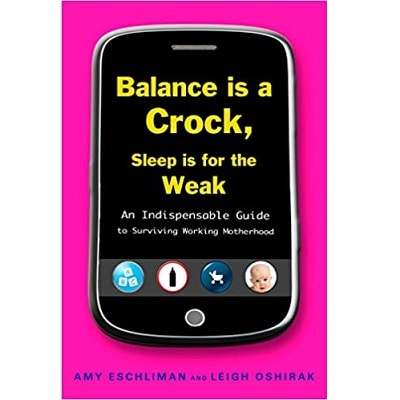How to Do the Work You’re Not Ready For
This post may contain affiliate links and Corporette® may earn commissions for purchases made through links in this post. As an Amazon Associate, I earn from qualifying purchases.

What do you do when your boss gives you work that is beyond your skill level? Reader C wonders how to do the work you're not ready for yet…
How do you handle a situation when you're asked to do a task you're definitely not ready for? I am a newly admitted lawyer in my first job out of law school and I have been doing mostly doc review for 6 months, only within the past 2 weeks have I started doing substantive legal work.
My boss asked me to cover a meeting he could not attend. The purpose of which was to allow non-lawyers within the agency to play “ask the lawyer” (me) about general legal questions accumulated over the past month. I am unfamiliar with the legal material and do not have time to prepare. I told my boss I didn't feel I could competently answer the questions in the allotted time and asked if we could reschedule. Did this make me seem incapable, weak, etc.?

This seems timely, especially since I just read an article with Marissa Mayer where she noted that she never felt ready for any of the work that she did.
From the article:
“I always did something I was a little not ready to do,” she said last year while speaking on her best decisions in a talk with NPR Correspondent Laura Sydell. “That feeling at the end of the day, where you're like, ‘what have I gotten myself into?' I realized that sometimes when you have that feeling and you push through it, something really great happens.”
So how do you do the work you're not ready for? How do you figure it out without screwing up? I hope that this can be a great thread where we share stories and advice for one another.
How to Do the Work You're Not Ready For
Here are some tips, both for Reader C and for other women in this situation. (And let me just say, I totally get why Reader C was hesitant about this meeting — it sounds like a minefield.) That said…
Is the reason you're uncomfortable with the work something that will be fixed if you take concrete steps? Here, Reader C felt like she needed to know the legal answer for everything that could possibly come up at a meeting like this. But there are no concrete steps that she could take to prepare for the meeting — not if she had three hours, not if she had three weeks. No one will ever know all the answers off the top of their head. The real purpose of a meeting like this is to let employees and clients ask any question on their mind — a lot of times it comes down to common sense, or it flags an issue where the managing team and the legal team need to work together to provide better guidance (protocols, guidebook, etc). Sometimes you may need to say, “You know, let me run some quick searches and get back to you tomorrow.”
Is this a rite of passage you're going to have to go through anyway? Again, for reader C, she's certainly going to have to attend this meeting at some point during her tenure with this company, and it's going to be difficult. A lot of situations are like this — your first big meeting with the VIP, your first major task by yourself, your first deposition, your first _[fill in the blank]_. No one's first time is perfect. The trick is that you get through it, learn, and get better. Part of the learning process is figuring out who to ask, who to study, what steps to take, and so forth.
Why shouldn't you do it? Is there anyone else who would do a better job? (And if so, why?) Here, reader C would certainly think, “my boss would do a better job!” But this is likely a task that he'd prefer to pass off to her entirely. The boss will always do a better job — that's why they're the boss.
In general, I think most bosses won't give work to someone who they don't think is ready for it — so consider the fact that the work is being handed to you a vote of confidence. Dig in. Be cautious and careful with your work — you may need to pull some extra hours to make sure you understand all the components of the task.
(For example, for reader C, I'm guessing the real guts of the task comes after the meeting — making sure everything she said off the cuff was correct, researching the more complicated issues, following up with different people.)
You can always ask for help if you need to, possibly from a few different people so that no one person really feels like you're “leaning” on them. If you feel completely overwhelmed, you can always ask for a quick meeting with your superior (well before the deadline) to briefly go over your method of attack, your basic preparation/research steps, and where you are in the work.
That way, if you've missed any steps in the process (you've forgotten to check a major source, you failed to see a major component of the task) you can correct well before the deadline.
Readers, what are your tips — have you ever experienced “growing pains” with work you weren't quite ready for? How have you gotten through the experiences? Do you think it makes you look weak to turn down work or ask for guidance? For those of you readers who are bosses/managers — how would you expect subordinates to handle tasks that are new to them and possibly above their skill level?
Some must-read business books for women — update coming soon!





Updated images via Deposit Photos / main.comebackimages.com.

“Did this make me seem incapable, weak, etc.?” Yes. You should have done it anyway. If your boss gives you a great assignment with responsibility, etc. and you shrink away from the opportunity, don’t expect to be asked again. And it’s not like this would even give rise to malpractice. S/he thought you could do it, so you should have done it.
It would be okay to express misgivings “Do you think I’m ready for it?” “Wow, that’s exciting, but scary. Thanks for your confidence in me. I hope I get the answers right.” Or “Thank you – do you have any tips for how I can prepare? What should I do if I am flat-footed and don’t know an answer?”
And, I hate to say it, but “How many guys would have responded the way you did?” Not many. And that doesn’t help the lot of us women out there.
I agree.. I don’t think any guy would respond that way. They would say yes and figure out a way to make it work. That’s what you need to do and that’s what your bosses will appreciate. I’ve said yes to a lot of things and had to research my way into preparedness so I could come off as knowledgeable and do a good job.
I agree with most of this comment. I think an open ended question about any tips boss has, followed by a couple follow up questions like, “is it ok if i agree to get back to them,” would show boss you were taking the assignment seriously. If I were the boss I would expect you to ask questions.
I supervise many law firm associates and see both men and women who don’t want to “own” a project or make judgment calls (or put themselves in the position to make judgment calls). Some of it is a lack of experience (and they will adapt), some is this is not the job for them and/or they have expectations that don’t match the job (i.e. they want consistency, exact tasks, etc) and some is just laziness. And of these three, guess which one is the easiest conclusion to reach? In my experience it is not a men-women issue at my firm, but of course, others have different experiences.
This. IME, it’s men 1/3 of the time who duck responsibility and women 2/3 of the time. It’s annoying and it does affect my willingness to give them more work.
We had a (male) intern who I needed to give an assignment. He didn’t start at the same time as our regular interns so I was trying to find something for him to do. I had two relatively simple projects lying around, both of which could be handled by someone still in law school. One was more substantive and the other was essentially filling in boilerplate – I explained both to him and said, “is there one you would be prefer to work on?” He didn’t even blink before saying, “I want the boilerplate one.” He was a really nice intern but I have to confess it totally affected how I viewed him and the sorts of projects that I gave him thereafter.
I agree. When you are given an opportunity at work you take it! I’ve been at my current position a little over a year. 2 weeks after I started I was asked if I wanted to “own” putting together materials for a company-wide conference. I had no idea what I was doing but I said yes! Everything ran smoothly and this was of course noted during review-time.
This is the STORY of my life! I am the onley one that is abel to do any legal research in my office (except for FRANK and he is NOT even a lawyer!). Everyone else just recycle’s the SAME breif’s and stuff they brought with them from LAW school and the bar exam!
The manageing partner researche’s by lookeing at his moldy BAR-BRI book’s, and they have OLD coffee and food stain’s on them and in the page’s. I am not even sure there was a CPLR when he gradueated! FOOEY!
But I DO get rewarded for being the smart one in the office, since I can research on line and on the world wide web (http://www) YAY!
The manageing partner give’s me bonuse’s and a clotheing allowance so that I can look good in court. He think’s I win b/c of how I look, but I think I win b/c of BOTH my legal arguement’s AND how I look! It is good to have both b/c the judge like’s me and he is getting PUBLISHED in NY SUPP! YAY!!!!!
I gave this same speech to my boyfriend recently, who repeatedly turned down getting more authority on more projects where he works because they aren’t specifically the kind of thing he likes to do so he hasn’t done as much of it. He shrugged it off and said that when he declined each time he told his supervisor to keep asking him in case a project he did want came along. I was amazed he got offered anything again after that, but his boss didn’t seemed miffed at all and continues to offer him great opportunities and recently gave him a fabulous promotion. I guess it depends on how much your boss trusts your decisions.
Yeah, I hate to say this, but I think she really screwed up. And it’s true, virtually no man would do this, and this is one of the reasons it is so hard for women to get ahead. One of the great arts of being an adult is knowing how to fake it to you make it.
Never never say “I’m not ready” if you any time at all to prepare (which is sounds like you do). Your boss asked you to do something; you tell him what you know, what you are concerned that you don’t know, and what you can do to prepare before the meeting. You let him or her make the call for whether you are ready based on that. If you are at the meeting and you don’t know something, write it down and say you’ll look into it.
The Peter Principle *has* to happen for everyone who is ambitious and useful and valued. It is actually a milestone. You can work through it even if you can’t rise above it. Those who never reachthe PP are coasters or unoteworthy by definition. It means you are getting somewhere, or that you got there, however ungracefully, and that you are giving it your all. Keep at it.
http://en.wikipedia.org/wiki/Peter_principal
I’m not a lawyer, but I do consulting. I’ve been at this less than two years and my managers are constantly exposing me to new situations, many of which I’ve never felt ready for. The thing is, I was ready. My managers knew I was ready. So I’m at the point where if they ask me to do something and it seems like it’s over my head, I trust their judgement and either ask for help or figure it out on my own. It’s amazing that they’re always right. No matter how overwhelming something may have seemed initially, it turns out I was perfectly capable. I guess this just makes me grateful that management pushes me but never puts me in positions that I absolutely cannot handle.
As another consultant, I completely agree with this. Many times I’ve felt overwhelmed or unprepared for the tasks giving to me in consulting, but by taking them on I’ve learned to operate in uncertainty and prove to myself that I can be successful in those stretch situations. Learn to say “I will follow up on that and get back to you.” You will make mistakes, and that is okay.
Client meetings generally don’t follow the Socratic method or feel like an oral argument. You don’t have to know all the answers at once. Clients are usually ok with either an “I don’t know, let me get back to you” or a hedged “I believe that this is the answer, let me double-check and get back to you” Yes, they want the answer in a timely fashion, but they want the correct answer more than the instant answer. When you are surrounded by lawyers all day, it is easy to forget how much of your knowledge (even as a green lawyer) many lay-people don’t have. Take lots of notes, ask lots of questions, and figure out what your client is trying to accomplish. Issue-spot what you can and then do your heavy research/problem-solving afterwards. It gets easier as you move along in your career.
In most cases, I think all of the above makes sense, but one thing I have learned is that sometimes the reason your boss gives you a task somewhat out of your league is not necessarily because he/she knows you can do it, but rather is because he/she has decided it’s ok if it doesn’t go well. It isn’t necessarily as intentional as the “glass cliff” setup, but more like “this outcome doesn’t matter very much in the big picture, so I’ll just have Monday do it for the experience/to save myself the time, and if she flubs up no big deal.” The good news is that the stakes are lower than you may think, for reasons you may not be able to see. The bad news is that you may indeed be being sent into a situation you’re not ready for! Your anxiety is not necessarily relevant to your boss! This happened to me once, and I didn’t understand the above dynamic at all until a few months later, when we debriefed. And by the way this revelatory debriefing only happened because I basically insisted on it. I learned a lot from the whole experience, and my boss said he did too.
I mean this only for perspective, not to discourage Reader C. As I said, chances are she is totally up for it and has in fact gotten the vote of confidence.
I agree with this (and also with bessa, above). My first mediation alone with the client only happened because the partner didn’t want to go and we knew the case wasn’t going to settle. So how much harm could I do? I’m getting more and more of those situations (huge hearings that the partners don’t have time for, etc), and while they’re initially terrifying, I wouldn’t dream of saying no. That’s part of becoming a better lawyer.
As to C’s questions, I think part of being a young to mid-level lawyer (and sometimes, beyond) is having new stuff thrown at you and having to figure out what in the world you are going to do about it. I’d say at least once a week I get an assignment and I spend 10 minutes staring at it and thinking “Now what?”
Eventually, you learn to fall back on your training: research, analyze, prepare. If you’re fielding questions from employees, it’s perfectly fine say “I think the answer is this, but let me follow up on that and get back to you.”
I think the advice you’ve received so far is great but I just wanted to add that I completely understand how you feel. I’m at a small firm with not many (essentially no) juniors so a lot of times it’s just me and the very senior partner and I’m asked to do things that an associate with 4-6 years on me would be doing at other firms.
It’s intimidating and I constantly feel like I’m not ready (imposters’ syndrome). If I’m asked to do something that is completely out of my comfort zone, I’m often first completely overwhelmed but then do what I learned to do in law school – break it down. More often than not, I can do it if I take it slowly and prepare. And yes I’m nervous and unsure inside but I try to wear my most grownup lawyer outfit that gives me the most confidence and fake it.
I’ve spoken to clients where I’ve had no idea what the right answer is. More often than not, let me check and get back to you is an appropriate response that doesn’t anger people.
I hope this helps – if it makes you feel any better, I feel a lot more confident and competent after about 8 months. The learning curve is steep (and I’m not there yet) but I now feel like I can handle the things I don’t know.
It sounds like this reader might be in a government agency. If so, the other employees aren’t your adversary, and it’s totally okay to say you don’t know and will need to research it and get back to them. Just make sure you do timely get back to them!
I think there are two questions here:
1) how to handle this type of meeting.
2) how to handle taking on projects you aren’t ready for.
For 1:
I did a “lawyers in the library” pro bono project back in the day. It was basically random people showing up at the library with their issue and getting 15 minutes with a lawyer. I had no background in those areas (it was mostly family law) but the questions were surprisingly basic and I had no trouble answering them–basically reviewing documents.
A few years ago, I was volunteered to teach a portion of a PLI course for newbies. It was my area of law but I had no special expertise. It really turned out to be what I think of as the “basics” and clarifying what the various issues were. Again, surprisingly easy.
I think Reader C should go to the meeting and not be worried. It’ll probably be mostly questions like “what should we do before releasing a product?” and “do I need an NDA before talking about this with another company?” Easy. There might be a few tough questions but she can write those down and follow-up later.
For 2:
You just have to go for it. It’s scary. IME, I’ve felt like I was doing much worse than I really was. I get feedback saying “great work” or “we appreciate it” or “you’ve really grown into this role” and I’m surprised. I might screw up a few things here and there but I just fix those and move on. I do have to work on not beating myself up over them, though.
K-Padi, you supervise people, right? What kind of response do you give people who you ask to do a new and potentially frightening task for the first time? I assume that most people make mistakes when doing something new. Does not taking a new assignment look worse in your eyes than taking it and messing up somehow?
I do supervise people. When giving a new type of task, I try to break it down into a series of small tasks so we don’t get too far off track. People do make mistakes but it’s very easy to distinguish honest mistakes from “I just threw this together and didn’t care”. The first type, I usually go back, re-frame the task (or demonstrate the task by doing it myself while they watch). The second type, I throw it right back at them and tell them to fix it.
Not taking a new assignment or half-a$$ing an assignment looks way worse than taking it and honestly messing it up. Really, if someone honestly messes up, I look very closely at what I could have done better as a mentor.
Thanks K-Padi! This is helpful to keep in mind to deal with some of the fear of taking on something new.
I’m extremely interested in the responses to this because I think I would likely have reacted like Reader C although that isn’t how I would like to react.
I would be more likely to jump at the opportunity if I’d had the chance to sit it on a previous meeting of this nature. The key for me would be getting familiar with the style of meeting, how questions are usually addressed, what kinds of questions frequently arise, and what was expected of me. At least getting an idea about those things would make me feel a little more comfortable and feel more able to rise to the challenge although I’d likely still feel unprepared and nervous.
Normally I try to suck it up and do what is asked of me even if I feel unprepared, but interacting directly with clients and therefore being the face of the office makes this situation seem much more terrifying to me.
You know, I’m reading Sheryl Sandberg’s book right now, and she also is talking about how bosses are often pushing us to do things we aren’t ready to do. I feel like it’s just the opposite for me – I’m always wanting to stretch and try something outside my comfort zone, and I feel like I’m always getting slapped back down – you aren’t ready to do that just yet. Maybe I’m not as good at what I already do as I think I am.
@Chilled Coyote: It sounds like your problem might be a corollary of the Peter Principle (mentioned above):
“In addition, Peter suggested the idea of “super-competence” in an inappropriately low position….Competent managers will promote this employee for the betterment of the company. Incompetent managers will most likely feel intimidated or threatened by this employee. This employee is a disruption to their perceived natural order and will almost certainly drive them to set this employee up for failure or dismiss him. Organizations with poor leadership cannot handle this type of disruption to their hierarchical structure. A super-competent employee “violates the first commandment of hierarchical life with incompetent leadership: [namely that] the hierarchy must be preserved.” – Peter Principle, Wikipedia http://en.wikipedia.org/wiki/Peter_Principle
I think its important to assess what are your actual limitations vs. what are your fears? For example, I was asked to take over a role requiring a specific skill set far outside my own training or experience. The man I was replacing had 20 years experience in this role and the knowledge and depth of skill that came with it. People go to school and get degrees in this area. I’m a highly intelligent, motivated person. I have other degrees, other skills and knowledge that complimented and overlapped what I was being asked to take on, hence being asked at all.
Was I was afraid of messing up or doing a less-than-stellar job? Of course.
Was I able to overcome those fears with practice and instruction in my new role? Yes.
Were/are there limitations to how much I’m able to do vs. the old guy? Absolutely.
And *that’s* the conversation I had with my manager. I’m willing to learn; she’s willing to tolerate a few mistakes due to my learning curve; and, we have a plan in place for when things get truly beyond my skill level and we need professional help (no humor intended). I worked meticulously to identify and document 1) what it was I could do from the get-go, 2) what I was going to need some time to learn, and 3) what I would need formal training for before I could accomplish. Items in bucket #3 were the things a professional would be called in to do, if the occasion ever arose. So far that hasn’t happened, and I’m in charge of a new and challenging area!
(Side note: in order to develop this plan and present it to my manager I took step-by-step notes for days and color-coded with highlighters. This let me visually see how much more I was able to do than I originally thought).
Almost everything I have been tasked with doing as an attorney, I wasn’t prepared to do before doing it. I think this is just part of being a lawyer. I think part of the job is to become more comfortable with doing things you’re not necessarily comfortable doing ahead of time.
agree with AIMS. even as a sixth year there are times i feel like this, although it’s nowhere near as frequently as i did when i was a first year. feeling like you’re in over your head is scary, but you just figure it out and muscle through.
I completely understand why you would feel overwhelmed by a “tennis match” meeting (where the questions are flying fast and furious) six months in! I agree with the responders, but no one has mentioned the potential malpractice ramifications of diving into a “legal advice meeting” without all the answers. If you do go, be VERY careful about rendering opinions, and don’t give an answer unless you know it’s right. You don’t want to be in a situation where you give out the wrong advice and get blamed.
THIS.
Exactly. In many circumstances I would agree with the “go for it” cheerleading. But if you’re actually expected to render legal opinions or advice, this strikes me as dangerous.
YES. I am surprised Kat didn’t mention this in the post, but I would feel VERY uncomfortable as a first year because of this. Even knowing not to give “answers,” I’d have been nervous that I wouldn’t even appreciate the implications of a question. As a fifth year, I’d still be a little nervous, but at least I’m now better prepared to craft weasel-y answers and follow up with researched/confirmed answers :)
I’m a lawyer who went in house straight out of graduation, so everything I work on is just me and senior attorneys or businesspeople. Almost every new task is something I’m not ready for! I’m only a few years out of law school, but I’ve had way more substantive experiences than my law firm peers. Embrace the challenge! Don’t be afraid to say something like, “I believe that X is the case, but I will confirm it with you by the end of the week.”
I had the same experience. You really never know what issue will come up on a daily basis. My boss always expects me to handle the issues and come to her only in the circumstances where I run into issues or have questions. I’ve become very resourceful in finding answers.
Hi all – I’m Reader C.
It seems like a lot of you think I should have handled it a different way, so I wanted to follow up with some more specifics to see if it changes any opinions.
The questions that were being asked were about our agency policy and statutory interpretations in extremely fact-specific situations, which can vary widely. I was given 4 single-spaced pages of questions at 9:00 a.m. with a 10 a.m. call scheduled. My limited knowledge of the department’s current policy put me at risk (from my perspective) of either a) looking like an even bigger idiot to a larger group of people; or b) stating an incorrect department policy. I would have literally had to say “I’ll look into that and get back to you” for every single question – which, why have a call in that case? Up until this point, I had been doing doc review completely unrelated to this area of practice.
Believe me, I hated asking to reschedule, even though my supervisor didn’t seem to mind, but I honestly felt it would have been irresponsible to try to advise these people, and that it was against my better judgment.
I’m generally not one to back down from opportunity, and I have been in and embraced uncomfortable I-don’t-quite-feel-ready-for-this situations before, of which I came through fine, but this instance felt different and I trusted my judgment.
I am a “never send a man to do a woman’s job” kind of person, so it troubles me that many of you do think that this made me look weak and incompetent. I’ll be sure to reflect on all of this advice in the future, and I appreciate it!
I’d suggest re-posting your follow up on tomorrow morning’s thread.
I think you did the right thing. And I don’t think it makes you look weak and incompetent. I’d be curious to find out if you had the meeting once it was rescheduled, and how it went!
I just posted above and think you did the right thing. Asking to reschedule to have time to adequately prepare is something that I (and my boss) do all. the. time. Perfectly reasonable and a good way to handle it while still ultimately taking responsibility to do the call.
You did the right thing. I’ve seen lawyers do the exact same thing — lawyers who own their own law firms and have 20 years experience. Knowing when you are HONESTLY out of your depth and saying so is just as brave as taking on things “you’re not feeling ready for.”
If you gave these people bad legal advice it would definitely come back to bite you.
Way to stand up for good work over looking good!
This is so ridiculous, but whenever I’m presented with an opportunity I’m hesitant to taken, I think of that silly Jim Carrey movie, “Yes Man” where he went to the motivational speaker and the audience would chant, “No Man! No Man! No Man!” at him every time he said no. The speaker challenged him to say yes to everything for a period of time and his life changed for the better. So dumb, but it really made me think twice about why I was saying no to things (comfort zone and all) and force myself to say yes. I got a huge promotion by saying yes, by the way.
aloha,
I think this is a situation where a little more information from you would have let us all provide more useful information for you. It’s usually good to be anonymous, but without more data, we’ve all been spinnin’ our wheels.
Not necessarily. In terms of answering OP’s specific question that may be true, but as a young lawyer, I took something from this discussion and I think the OP did as well. I think everyone who read this thread will take an extra moment to think next time they are given an assignment that’s out of their comfort zone.
It was my first time hiring an employee, and I enlisted the help of a work “friend”. She knew I was a little nervous, she knew I planned to share the employee’s time with her and it was on her calendar weeks in advance. We spoke at length about it the day before. Don’t you know that girl didn’t show up for the interviews the following day? Not only did she not show up, when she finally made it into work she blew me off. I got through the day of interviews, but I was fuming and I told my husband all about it once I got home.
He was very quiet for a moment. Then he said, “Well did you cancel the interviews?” I told him of course not. He asked me how they went. I told him “fine”, but I really wanted more sympathy about my co-workers betrayal. Then he said, “Well, you shouldn’t have asked her in the first place. You didn’t need her.”
When you’re entry level there’s a lot you don’t know. This includes a complete ignorance of what you’re ready for. You don’t know what you’re ready for, so you just TRUST you boss’s management and delegation style and if a task is given you have to assume you’re ready enough and do it. We’re ready for far more than we feel we are, and if you are fortunate to have someone around to push you to figure that out, then you should take that opportunity.
This was very very helpful. I needed an answer to this question and I am so glad I did not refuse the task but my boss did admit that I needed a bit of prep before hand. I am more on the clerical and QA end of an IT/Software company and I needed to be prepared to ask some technical questions and I needed to be prepared for that.